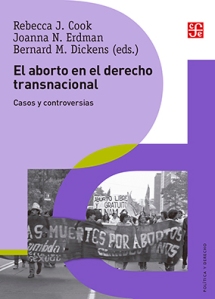Many thanks to legal scholars Lewis Bande, Ph.D, and Godfrey Kangaude, LL.D., for submitting a learned commentary on the High Court of Malawi’s first ever “Ruling on a judicial review application to access safe abortion,” decided June 15, 2021. Their 6-page summary and analysis of this decision has just been published at this link, among the online updates to the third volume of case summaries, Legal Grounds: Reproductive and Sexual Rights in Sub-Saharan African Courts. Here is a brief overview of their comments on the following case:
The State (On the Application by HM (Guardian) on behalf of CM (Minor) vs The Hospital Director of Queen Elizabeth Central Hospital & The Minister of Health: Judicial Review Cause Number 03 of 2021 (unreported) (High Court of Malawi, Zomba District Registry) Decision of 15 June 2021. Decision on Google drive. (Download:) Legal Brief by Lewis Bande and Godfrey Kangaude.
The case centres upon a minor known as “C.M.,” a 15-year-old girl who had been “defiled,” impregnated and abandoned by a married man. She claimed to have been refused termination of pregnancy at the Queen Elizabeth Central Hospital’s facility for survivors of sexual abuse. There, healthcare providers told her that abortion is illegal in Malawi. From legal counsel, the girl’s family later learned that abortion is indeed illegal under the antiquated Malawi Penal Code of 1930, but prosecution can be avoided under Section 243, which provides:
| A person is not criminally responsible for performing in good faith and with reasonable care and skill a surgical operation upon any person for his benefit, or upon an unborn child for the preservation of the mother’s life, if the performance of the operation is reasonable, having regard to the patient’s state at the time, and to all the circumstances of the case. |
Healthcare providers routinely interpret this Section of the law restrictively, excluding victims of defilement or sexual assault. In this context, abortion requests and refusals normally happen orally and are not usually recorded in medical records.
The Court’s Ruling: The Court rejected the application for judicial review on the sole ground that there was no evidence that the First Defendant, as director of a public hospital, was responsible for any “decision” that could be judicially reviewed. As Bande and Kangaude observe, the Court cannot be faulted for this ruling. However, the Court proceeded to speculate that this application would probably have failed on other grounds that seem debatable. The Court’s ruling, they write, shows room for further litigation on the interpretation of the current law for girls and women who have been sexually assaulted. In the ruling, the Court used language that suggests that it recognizes that preservation of a woman’s life entails preserving her mental and physical health. This seems progressive on the part of Court, as it conforms with the consensus in the human rights discourse that the rights to health and life are closely related.
Significance: Although permission for judicial review was denied, this ruling is a milestone, marking the very first instance that the High Court of Malawi has acknowledged and discussed the position that abortion can be lawfully performed in Malawi. The ruling also shows that defiled or raped Malawian girls and women are being excluded from safe abortion, and they are forced to keep pregnancies that are a result of sexual assault because the Section 243 exception is interpreted restrictively by health providers. The Second Defendant in this case was, appropriately, the Minister of Health, because decisions to refuse terminations of pregnancy would be based on policies for which the Health Minister is responsible.
The Malawi Law Commission’s 2015 review of the colonial abortion law proposed liberal changes to the law which, if implemented, would eventually expand access to safe abortion.[1] Rather than waiting for law reform, the Ministry of Health should immediately provide defiled girls and rape victims with access to safe abortion by clarifying the application of the existing abortion law. In the Health Ministry’s current Standards and Guidelines for Post Abortion Care (2020)[3], section 1.2, it remains unclear whether victims of sexual violence can access safe terminations legally. Professional guidelines should clarify that any girl or woman who has been raped or defiled should have an option to terminate the pregnancy, and without being subjected to burdensome requirements such as proving severe depression or suicidal ideation. Meanwhile, health advocates should continue to champion law reforms that respect Malawi’s constitutional and international obligations toward girls and women.
Related Resources:
[1] Malawi Law Commission. Report of the Law Commission on the review of the law on abortion (Penal Code CAP.7:01 of the Laws of Malawi). Lilongwe: Malawi Law Commission; 2015. Report online.
[2] See also: Godfrey Dalitso Kangaude and Chisale Mhango, “The Duty to make abortion law transparent: A Malawi case study” International Journal of Gynecology and Obstetrics 143.3 (Dec. 2018): 409–413, Published Version at IJGO. Submitted text online at SSRN.
[3] Ministry of Health, Malawi, Standards and Guidelines for Post Abortion Care 2020. 43-page document. PAC Guidelines.
(Download:) Legal Brief by Lewis Bande and Godfrey Kangaude.
________
Compiled by the Coordinator of International Reproductive and Sexual Health Law Program, reprohealth*law at utoronto.ca. See Program website for our Publications, Research resources, and Reprohealthlaw Commentaries Series. TO JOIN THE REPROHEALTHLAW BLOG: enter your email address in the upper right corner of our blog, then check your email to confirm the subscription.



 Posted by reprohealthlaw
Posted by reprohealthlaw 



